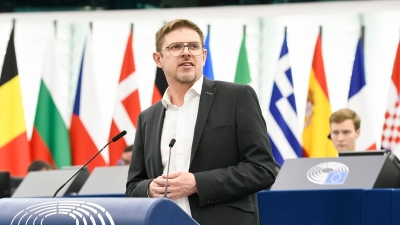Centre-based treatment in Czechia yields results, but costs soar

A new analysis by Ernst & Young (EY) for the Czech Association of Innovative Pharmaceutical Industry (AIFP) underscores the benefits of centre-based medical care in Czechia. However, rising costs are fast straining the business model.
Centre-based care focuses on delivering cutting-edge treatments in specialised centres. In Czechia, this approach has demonstrated significant improvements in life expectancy and quality of life for those suffering from various diseases, particularly neurological, ophthalmological, or oncological.
Currently, 126,747 Czech patients are undergoing centre-based treatments, utilising the latest pharmaceutical innovations. Data from the Czech Institute of Health Information and Statistics (IHIS), on which the new analysis is based, reveals that each year, 10-15% of new patients are referred to these centres, gaining access to innovative treatments previously unavailable.
The benefits of treatment are becoming increasingly apparent, particularly in the reduction in patient mortality. “We are also seeing an improvement in the quality of life of patients on treatment provided in the centres, with a significant reduction in hospital admissions or acute bed stays,” explained David Kolář, AIFP’s executive director, on Wednesday (17 April) during the presentation of the analysis results.
The success of such interventions is exemplified by the treatment of multiple sclerosis, where 62% of the patients receive care in 15 designated centres across Czechia. These patients enjoy nearly normal lives with minimal lifestyle restrictions.
Soaring costs
Despite these advances, the financial strain is undeniable.
“The costs in this healthcare segment are escalating due to the centralised nature of this treatment, where modern medicines are prescribed exclusively in specialised centres,” Kolář said. This has resulted in a cost of CZK 30 billion (€ 1.2 billion) in 2023, marking less than 8% of the Czech healthcare budget but showing a notable increase from previous years.
Financial pressure was also highlighted by Jan Bodnár, deputy director of the Czech General Health Insurance Company (VZP).
According to Bodnár, the rapid pace of cost growth is related to significant advances in medicine, for example, in the field of high-cost gene therapy and treatment of rare diseases for which there was no alternative treatment until now.
“In the near future, it will therefore be necessary to address the issue of sustainability and stability of the volume of financial resources with regard to the provision of state-of-the-art therapies from public health insurance funds,” Bodnár explained.
Risk-sharing could help with financing
In response to the escalating costs, Czechia is exploring new models, such as risk-sharing payment schemes between pharmaceutical companies and insurance companies, as insurers warn that some costly innovative substances could not lead to the desired treatment outcomes.
Another option is the decentralisation of the administration of selected innovative medicines to control spending while maintaining access to these essential treatments.
According to the innovative industry, such measures would help, but VZP thinks that more needs to be done – for example, possibilities of central purchasing or linking financial arrangements with the treatment outcomes.
Less need for centre-based treatment
Despite the strong results of centre-based treatment, the goal is to have less need for treatment by advancing prevention and early diagnosis.
Ladislav Dušek, IHIS Director, emphasised the importance of early diagnosis in reducing the need for centre-based treatments, particularly in cases like melanoma, where early intervention can prevent more severe stages of the disease.
Echoing this sentiment, Jakub Dvořáček, Czech Deputy Health Minister, outlined the government’s approach. “Capturing patients in the early stages, that’s the intention we have. To allow health insurers to work much more with insurer incentives, bonuses,” he said.
This is also the direction of the amendment to the Public Insurance Act, which the Czech government introduced in April and could go to the Czech Parliament for discussion during the summer of 2024.
[By Aneta Zachová, Edited by Vasiliki Angouridi, Brian Maguire | Euractiv’s Advocacy Lab]
Read more with Euractiv




